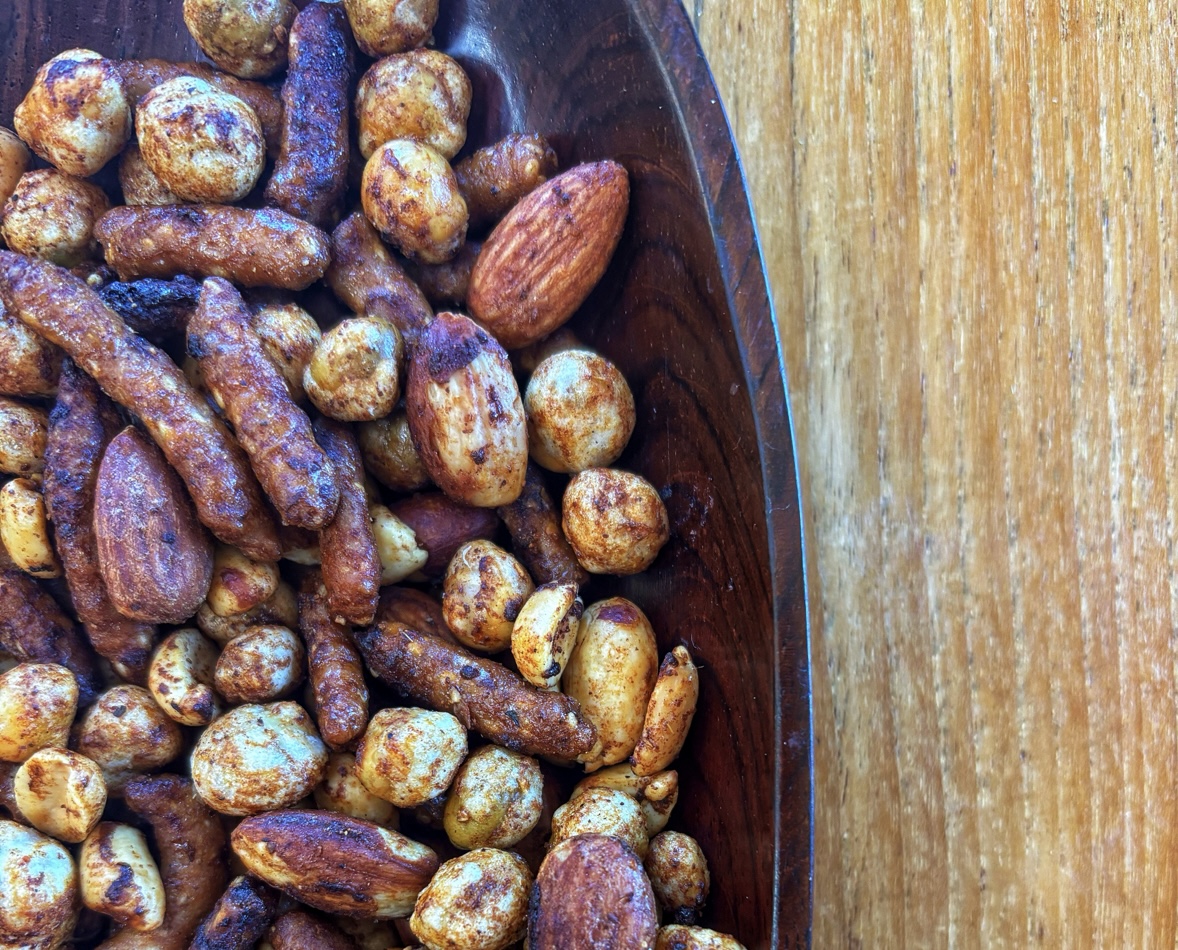Upon hearing the news of Dun Gifford’s death last week, I paused for a bit, thinking about everything that Dun has offered to the world of food. While his name might not ring a bell for you, I am sure that his work has touched your lives. He was the president ofOldways Preservation Trust founded in the 1990s to promote healthy eating and drinking, with programs that help consumers improve their food and drink choices, encourage traditional sustainable food choices, and promote enjoyment of the pleasures of the table.
Changing the way people eat through practical and positive programs grounded in science, traditions, and delicious foods and dinks, Oldways is best known for developing consumer-f riendly health-promotion tools, including the Whole Grain Stamp and the well-known Mediterranean Diet Pyramid.
With his business partner at Oldways, Sara Baer-Sinnott, Gifford co-authored of The Oldways Table, described by one reviewer as a “comprehensible and extensive food reference packed with alluring recipes, helpful instructions, nutritional information and exceptionally amusing stories and essays about food and life.”
With that in mind, I thought it appropriate to pay respect to the work Dun has done, and highlight the Mediterranean Diet.
The Keys to the Mediterranean Diet
The concept of the Mediterranean diet originated from theSeven Countries Study initiated by Ancel Keys in the 1950s.There is no one singular Mediterranean diet, rather it is an amalgamation of the diets of the numerous countries that border the Mediterranean Sea. These countries (even regions within the countries), vary in ethnicity, religion, agricultural production and economy make these diets different, however, they do have commonalities.
First, they consume high amounts of fruits, vegetables, bread and other cereals, potatoes, beans, nuts and seeds. In addition, olive oil is an important source of monounsaturated fat, and olive oil is an important monounsaturated fat source. Further, dairy products, fish and poultry are consumed in low to moderate amounts, and little red meat is eaten.
Through the years, numerous studies have looked at the Mediterranean people and their diet in an effort to determine why the people of the Mediterranean countries have a lower incidence of heart disease than in the U.S. Among the numerous findings is that more than half the fat calories in a Mediterranean diet come from monounsaturated fats (mainly from olive oil). And, because monounsaturated fat does not raise blood cholesterol levels the way saturated fat does, it is believed that olive oil is an essential key to their health.
While olive oil and other foods such as whole grains, fish, poultry and lean red meat–all eaten in moderation—are integral to the diets of the Mediterranean people.
Research reveals that it is more than just the singular foods, rather it is the interaction between all the foods that leads to health benefits.
Further, in addition to the foods of the Mediterranean, healthfulness is aided by certain lifestyle factors in the region, such as more physical activity, a stronger social support system, and less stress.
If you’re looking for a way to adopt the ways of the Mediterranean people, here are a few suggestions:
- Choose Fresh, Healthy Foods: Traditional Mediterranean meals are based on plentiful fruits, vegetables, beans and legumes; an abundance of bread, pasta, rice, couscous, and other grain foods, especially whole grains; nuts and peanuts; extra virgin olive oil; fish, poultry and lean red meat; cheese and yogurt; and moderate amounts of wine. Try, when possible, to eat foods in season, and to avoid excess amount of processed foods.
- Control Portions: When food is full of flavor, a little bit goes a long way. Whole foods with full flavor satisfy your senses, and keep you from overeating. Further, healthy fats such as olive oil and nuts help us feel full longer than when we try to restrict fat altogether.
- Choose Fats Wisely: Choose monounsaturated fat found in olive oil, nuts and avocados, as well as polyunsaturated omega-3 fatty acides found in fish such as salmon, tuna, sardines and trout. Further, fat from plant sources, including flax seed are important. By limiting the amount of processed and packaged foods you consume, you can cut down on consumption of unhealthy trans fats which, as we all know, has been shown to increase the risk of heart disease and strokes.
- The principal fat of the Mediterranean people is olive oil. It is used in everything from pasta and bread to pastries. Research has supported that olive oil is more than offering monounsaturated fats, but that it is rich in antioxidants and phenolic compounds with a variety of protective effects.
- The Med diet is also abundant in Omega-3 fatty acids, which have been found to reduce the incidence of a variety of ailments from heart attacks, hypertension, stokes, and may even prevent certain forms of cancer and lower the risk of neurological disorders like Alzheimer’s disease.
- Less Meat, and More Veggies: While not totally a vegetarian diet, Mediterranean people feast on a plethora of vegetables such as tomatoes, eggplant, mushrooms, capers, peppers, spinach, lentils, beans and chick peas. Once again, research points to diets rich in plant foods and lower in animal products is liked to a decreased incidence of many cancers, diabetes and heart disease.
- Whole Grains: Because whole grains are slow to digest, they help us feel fuller longer. And, while doing so, they provide us energy (and calories), with little fat. Whole grain foods, including bread, pasta, polenta, rice and couscous are integral to the Mediterranean diet. And in their natural state (not when processed to create white flour and rice, for example), they are filled with fiber, vitamins, minerals and nutrients that help prevent a host of diseases.
- Wine. It is a well-known fact that most Mediterranean people drink a glass or two of wine (in small portions) each night with dinner. When taken in small amounts, wine has been linked to lower rates of heart disease, likely due to the presence of antioxidants, which keep blood circulation healthy and prevent blood clots from forming.
- Walking and Talk: In addition to eating smaller portions of healthier foods, the people of the Mediterranean love to walk. They walk to work, take a stroll to visit friends, take a leisurely stroll through the countryside. While doing this, they socialize and keep connections with their neighbors – good social connections have also been linked to better health.
Remember, making good choices about food is a whole-life approach. It is part of a lifestyle that includes exercise, building relationships, and slowing down. Create a tradition of finding fulfillment in the foods you eat, how and where you eat them, and with whom you eat your meals.
To get you started living the Mediterranean way, regardless of where you are, check out our Slow Sundays Challenge.
Try this Mediterranean recipe, which is a delicious, healthy sandwich that makes a great summer supper.
Here is a great place to find many additional healthy Mediterranean recipes – Enjoy!
Family Eats


